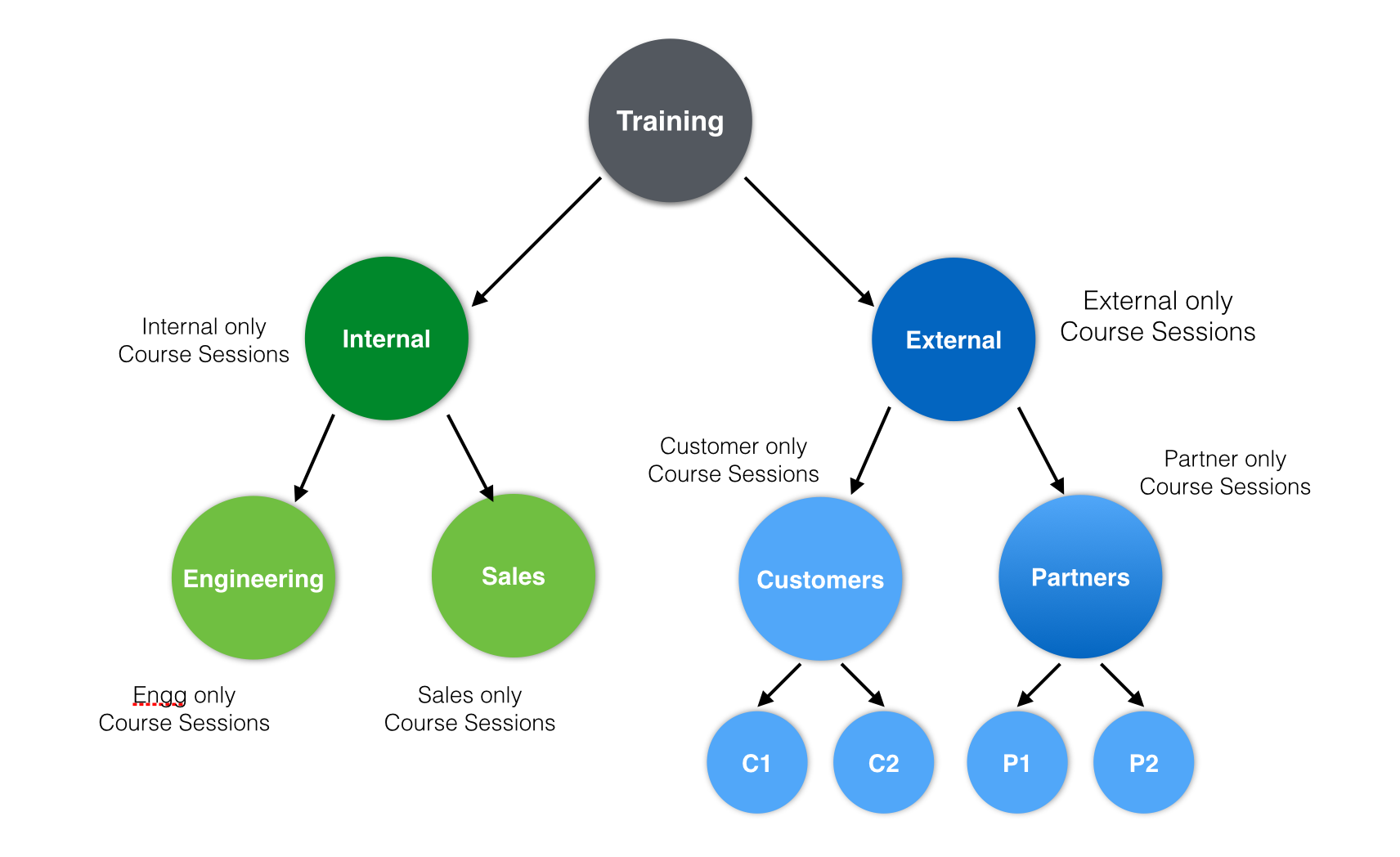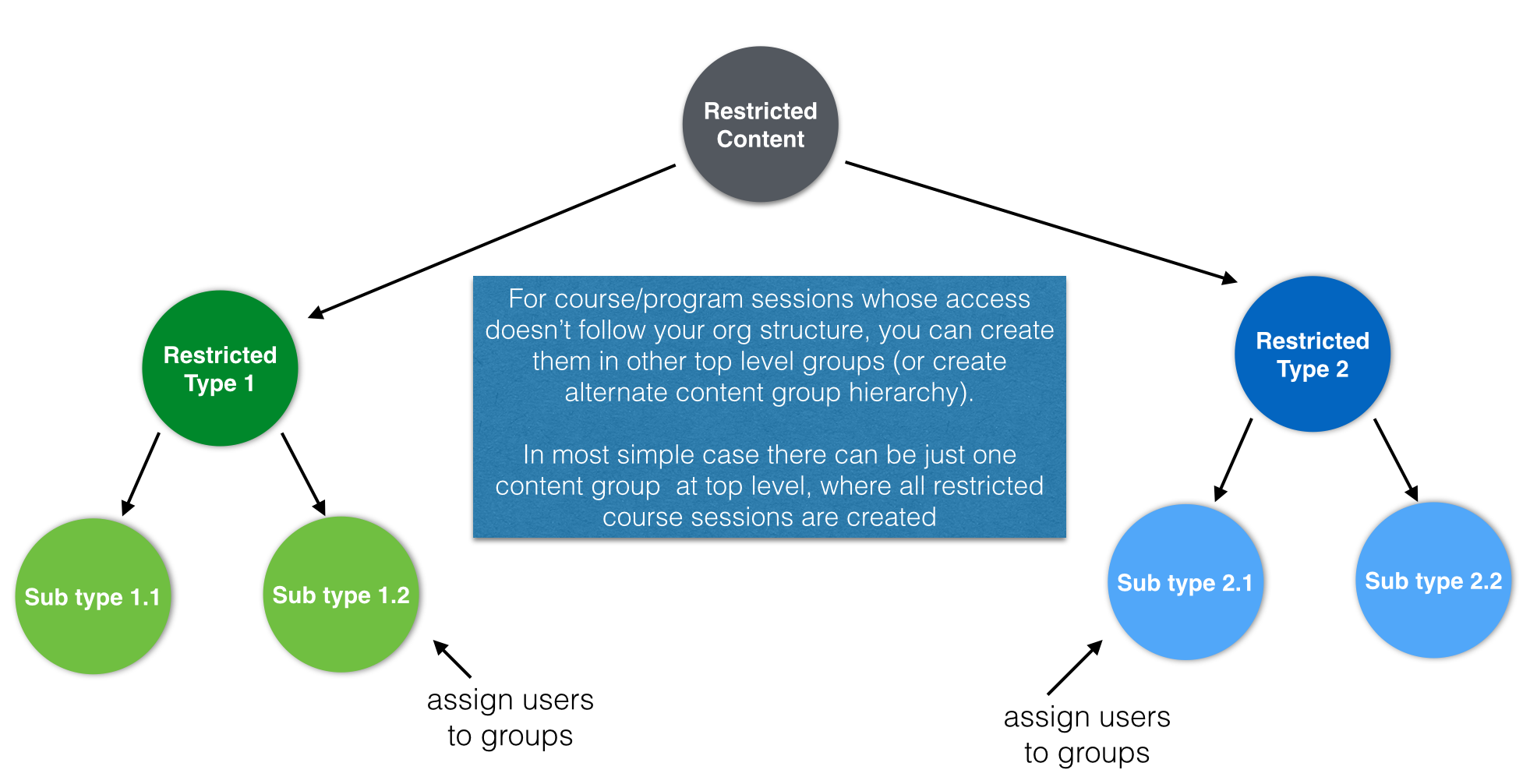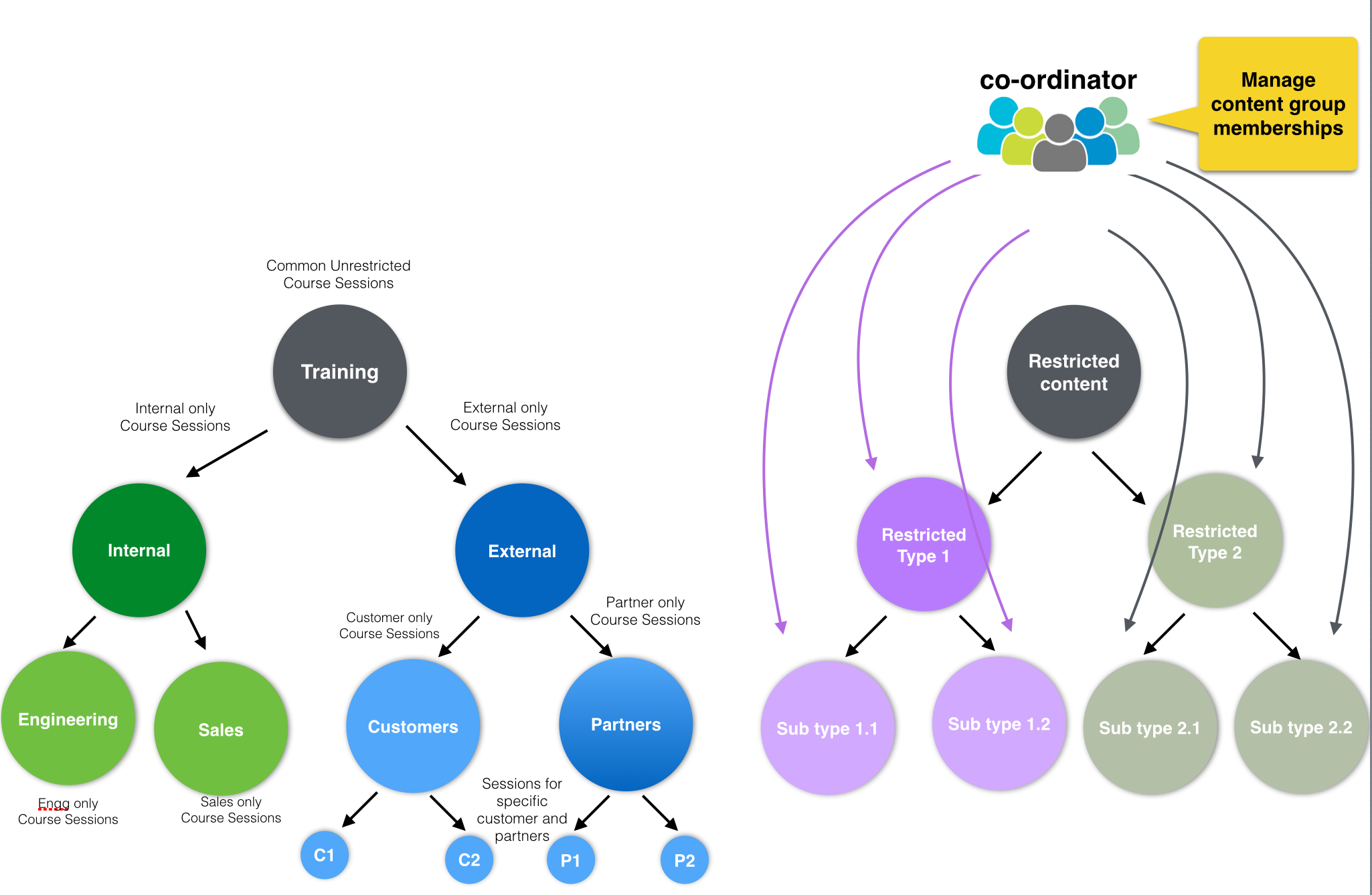What is coordinator?
Coordinator is a special role in groups, that allows adding/removing users in the group, without giving full admin permission. A coordinator is generally, also a group admin elsewhere in the lms, so they are like team manager in an organization. They can add/remove only their team members into other groups using coordinator role.
Why do we need coordinator?
Short answer is, allowing team managers to enroll their team members into other groups that are not generally open, and those may have some useful course sessions and programs.
Background
Hierarchical setup of groups
Normally in EduBrite LMS, you create a hierarchy of groups, to efficiently organize your course delivery.

Limitations of this arrangement
Although the setup mentioned in previous section works well for many implementations, it does have some limitations which make us think about alternate kind of group arrangement.
- Group hierarchy in this arrangement can be made according to org structure or training delivery structure. It can't be both. E.g. if you have some courses that you want to provide to just a few sub-groups inside Internal and to a few selected customers, you will have to create multiple course sessions in those specific groups.
- Even if you create multiple course sessions for different teams, it gives team managers admin level access inside those course sessions created locally in their groups. In some cases it may be useful / okay, but in some other cases you may not want to give team managers ability to fully administer their individual course sessions and programs
Two hierarchy setup of groups
Org Groups
The first hierarchy typically is created according to org structure to manage both internal and external users (employees / customers / partners).
Content Groups
In a large implementation, where there are many courses and programs and you do not want to create multiple copies of course-sessions/program-sessions for specific groups, content groups design might be a good idea. To create course sessions and programs, you can create a different hierarchy of groups (we can call these groups as 'content groups'). These groups are no-special, just normal groups, but their main purpose is to organize training in logical chunks.

To provide self enrollment access to course-sessions and program-sessions in these content groups, you just need to manage adding users to these groups according to what chunk of trainings a user has to take. So users will have memberships in two kinds of groups - org group, and one or more content groups.
Adding users to Content Groups
Admins of the content groups can add users into their groups. But generally in a large setup, content-groups are administered by a centralized L&D folks who have a lot of responsibilities and can't manage adding users to these groups (we are talking about cases where #users run in tens of thousands). In such cases, Coordinator role can be used effectively.
You can add few users in these content group(s) and give them coordinator role in those groups. A coordinator Jack gets access to add other users in these content groups as long as those users are a member of group(s) where Jack is an admin. Essentially admin of individual department groups in Org Hierarchy (e.g. C1, C2, Sales etc) can be given coordinator access in content groups, based on which of those content-groups have relevant trainings for their teams.

Coordinator's Access
- Coordinator is a special role at the group level, that is not an admin, nor an instructor. So this role doesn't compromise admin permissions in content groups in any ways.
- The other privilege they have is that they can use the courses authorized in content groups (where they are coordinator) to create new course sessions and programs in the groups where they are an admin.
- E.g. John who is an admin of Sales group, can create local programs by selecting from courses authorized in groups where John is a coordinator. Its useful in case John thinks that for his team, a slightly different variations of training is needed than whats available in content groups.
- So he can can create a local program for Sales group (or course session) with a different combination of courses than similar program available in content groups. By creating local program/course sessions, John can also decide things like duration of the session, grading policies, certificate or no certificate and program level badge among other things.
- If you have enabled authoring permission for all users, then group admins (and instructors in those groups) like John, can create their group specific courses, combine them with the courses available from content groups, and create a personalized Program for their groups.
Webinar
Please check this webinar recording for detailed discussion on this topic.

